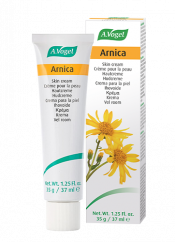An introduction to bruises
Bruises, medically known as contusions, are small collections of blood under the skin and surrounding tissue. They normally appear as blue or purple patches and arise as a result of injury.
Bruising comes about because pressure from the injury causes very small blood vessels, known as capillaries, to burst under the skin, leading to a minor form of internal bleeding. Blood leaks out and spreads into the surrounding tissue giving rise to the characteristic skin discolouration we call a bruise.
Although bruises normally appear blue or purple, they may develop a green or yellow tinge a few days after the injury as the process of healing takes place.
Causes of bruising
Bruises are mostly caused by minor injuries damaging the small blood vessels lying under the skin. These vessels are thin and lie close to the surface, making them very vulnerable to damage.
The most common causes of bruising are:
- Bumps or any abnormal force applied to the body
- Falls
- Joint sprains
- Muscle strains
- Sporting injuries
Less common causes of bruising include bone fractures as well as problems or abnormalities with the blood’s clotting mechanism.
The time taken for a bruise to appear and disappear varies depending on the individual and the severity of the injury. Discolouration usually appears within an hour of the injury and may last for up to seven or ten days.
During this time, the bruise will change in colour from a dark red, to blue or purple, then green, yellow or brown shades. These changes occur as blood cells and fluid released into the tissues break down and tissues heal.
Bruises and swelling
Bruising may sometimes be accompanied by swelling, especially if the injury is severe. There are two reasons for this:
- Blood leaking from damaged blood vessels may be sufficient in quantity to cause swelling – this is referred to as a haematoma or an ‘internal blood clot’
- Damaged tissue triggers an inflammatory response as the body heals and this may lead to an accumulation of fluid in affected tissue.
In response to the injury, immune system cells mop up the red blood cells and release anti-inflammatory substances and over time, swelling reduces.
How to treat a bruise
The body is very accomplished at self-healing and most bruises will disappear within a few days or a week of injury without the need for any treatment. However there are a number of steps you can take to limit the amount of damage and speed up healing:
- Apply an ice pack as soon as the injury occurs. Commercial ice packs are available but may not always be easily to hand. A good alternative is a bag of frozen peas or anything similar you can find in your freezer. Whatever is used, ensure that a towel or a piece of cloth is wrapped around the frozen item before applying it to the skin. This to avoid the risk of frostbite. Cold reduces blood flow to the area, limiting the amount of bleeding from the injured capillaries, thereby reducing the size of the bruise
- If possible, elevate the damaged area above the level of the heart as this will also decrease blood flow and leakage
- Apply an arnica extract such as A.Vogel's Arnica Skin Cream. As well as decreasing the amount of bruising and accelerating healing time, arnica cream will also reduce pain and inflammation.
My Top Tip:“Excellent product, always like to have some in the house.”
|
Bruising easily
Some people seem to bruise more easily than others. For most, this should not indicate a serious health problem.
Certain groups of people are more susceptible to bruising:
- An older person will have thinner skin and walls of blood vessels
- Women bruise more easily than men
- Young children often sport a bruise or two
Some medicines thin the blood and may lead to an increase in bruising. If this is the case with you, make sure that your doctor is aware of the problem.
Occasionally, bruising easily can indicate more serious conditions. If you are not sure of the cause of your bruising, you must see your doctor.
Unexplained bruising
Just as with bruising easily, unexplained bruising is not usually something to worry about. We bump ourselves more than we realise, not even noticing the time and nature of the injury.
Unexplained bruising occurs most often on the arms or legs as these are the parts of the body that are the most active. Like easy bruising, children, the young and women are more likely to experience unexplained bruising.
If you start to notice an increase in unexpected or unexplained bruises, consult your GP for advice as this may indicate a serious condition which must be dealt with as soon as possible.









